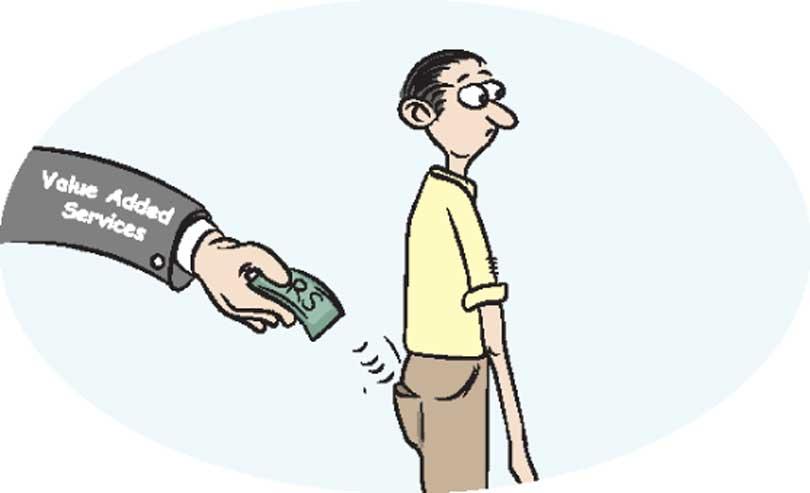Reply To:
Name - Reply Comment

After so many years of exploitation of customers by the telecommunication service providers and some unscrupulous elements in the guise of Value Added Services (VAS), The Telecommunication Regulatory Commission of Sri Lanka (TRCSL) has finally woken up and come up with a set of guidelines for the service providers in a bid to prevent them and third parties from pillaging the unsuspecting customers. The purpose of the guidelines seems to be to prevent the thrusting of so-called value added services upon the subscribers or the customers without their consent.
Although the TRCSL must be commended for this decision taken at least now, the question still remains as to why the telecommunication regulator was not moved for so long by customer complaints which itself claims to have received for the past several years. In the preamble of the guidelines the TRC says “it has been noted that significant amount of customer complaints increasing over the years in terms of disputes of subscriptions as well as billing by the operators.” How many complaints must be received by the regulator to act?
As per the guidelines, the Operator or the telecommunication service provider should make available the VAS information in all three languages viz; Sinhala, Tamil and English and allow subscriber to choose the VAS information in a preferred language. Before activating any type of VAS (USSD, IVR, SMS, Web based, etc.), operator should inform details of VAS to the subscriber.
Upon activation of any type of VAS (USSD, IVR, SMS, Web based, etc.) operator should send activation success confirmation SMS to the subscriber and after validation of activation of a service by a subscriber it should be reconfirmed with an OTP (One Time Password) mechanism. All activated VAS enrolled by the subscriber should be followed up with a message at each time the subscriber is charged based on the opted billing cycle (daily, weekly or monthly). The message should include a link to unsubscribe the service based on the discretion of the subscriber, the guideline prescribes.
The value added services is a mechanism of daylight robbery by some of the telecommunication service providers and a set of third party entities that plunder the telecommunication customers without their knowledge. You will know only when you receive the monthly bill for your telecommunication connection that you have been charged for services you have never even intended to use. No amount of complaints to the service providers would help redeem the money that has been plundered. A customer can approach only a customer care official and they would argue that you have used the VASs at least unintended and you have to pay for it.
Many customers are not aware as to what these services are and how and when they have used them. They do not know how to deactivate them nor do they know how to avoid them. Normally the customer care officials of the service providers oblige when a request is made to block the VAS already in use by the customer intentionally or unintentionally, but a new set of VAS might creep in and start to drain the pocket of the customer again.
In many occasions the representatives of the service providers pretend that they too are helpless in preventing the VAS from creeping into the customer’s devise. However, even a child can understand that the VAS have to reach the customer’s device through the service provider’s server and the money charged by the service provider from the customer for the VAS has to be transferred from the service provider’s account to the VAS provider’s account, which needs a prior agreement between the two account holders. Why should the service providers allow third parties to plunder their customers, using their own server, unless they gain anything from this transaction with those third parties?
Apart from this, the internet users are being hoodwinked through the so-called night time data which is not used by majority of customers. It is said that internet subscribers actually pay only for the day time data bundle and the night time data is just a bonus or free bundle. Even then the question remains as to why the operators offer a bonus in a manner that it cannot be used by the customers as and when they prefer. Isn’t this hoodwinking their customers? Why should a bonus just be shown and taken back? In fact the night time data offer has become a bait rather than a bonus.
Similarly, some telecom operators offer TV connections with packages that include only a small number of popular and well-known channels. And then they lure the customers to buy well-known or popular channels. Isn’t this unethical business? Customers must be allowed to select the channels which could be priced.